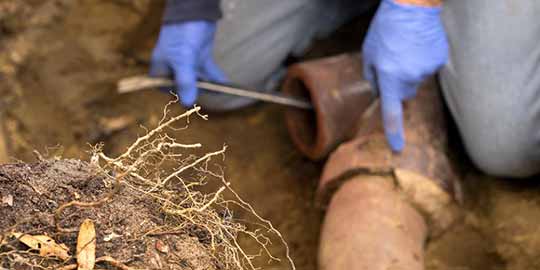
Your sewer line is the most hardworking part of your home’s drain system. Every day, it handles large volumes of wastewater from your home’s kitchen, toilets, and showers, along with solids and semi-solids inside the water. If it is trash and liquid, the chances are high that it will end up inside your drains to be channeled into the sewer lines.
With so much waste materials going into the sewer lines, it is expected that you should have problems from time to time. The most common sewer line issue you will face is blockages in the line due to accumulated debris. A blocked sewer line may cause you minor headaches, but it can also result in major disaster if it causes the sewer to back up.
A sewer backup is the most common drain problem in your home, says Vesta Management. Waking up to the sight and odor of raw sewage oozing from the toilet or floor drains is not an experience you want to have. The key to preventing this problem is to catch it early. But the trouble with catching sewer line issues on time is that the signs are not always obvious.
Why is that?
Sewer line blockages happen slowly, so the signs of the problem are often minor and easy to overlook at the beginning. Ignoring those initial signs of the growing problem in your sewer lines gives the blockage time to get worse. A minor blockage that could have been fixed cheaply may eventually cause massive damage that will cost thousands of dollars to fix.
How do you catch a blockage in your sewer lines before it causes a catastrophe in your home?
How to know if your sewer line is blocked
If you notice the following signs in your home, the likelihood of a blooming issue within your sewer lines is very high.
Drains are slow
If the toilet, shower, or sink is not draining as it should, it is usually due to a blockage within its drainpipes. Not all cases of slow drains are caused by blockages in the main sewer line.
A sink, toilet, or bathtub will be slow if there is an obstruction in the pipes immediately after that drain opening. To know if the slow drains issue in your home comes from the main sewer line or a specific drain, check if the problem is happening with all the drains in your house.
If the issue is broad, the source of the problem is in the main sewer line. Note that if you do not remove blockages in the individual drains in the home, they may eventually cause a blockage in the main sewer line. The best way to clear a blockage in your main sewer line is by having a professional perform a hydro jetting service.
Gurgling sounds
Gurgling sounds are caused by trapped air within a drainpipe trying to find its way out of the drain. In a typical situation, this should not happen; air will only be trapped in a pipe if there is an obstruction inside that pipe.
When water enters the pipe, the trapped air is then compressed, and having nowhere to go; it flows backward in the direction from which the water is coming. This creates a bottleneck at the drain opening, as the water tries to get into the pipe while the air is trying to leave it. The gurgling you hear is the sound of air forcing its way out through the water.
Multiple drain clogs
If your toilet is clogged, but the kitchen sink and shower are draining properly, the cause of the clog is in the pipes connected to the bathroom. The same is true if the sink or shower drain is blocked, but other drains in the home are working properly. However, if you find one or more drains blocked simultaneously and trying to solve the problem at the individual drain level does not work, you should look to your main sewer line for the cause.
Additionally, you may have trouble with persistent blockages in a specific drain, usually the toilet or shower drain. Blockages in the sewer line will show up in the shower and toilet before the sink because those are closer to the ground.
Strange reactions in your drains
When using a fixture or appliance, you may notice unusual reactions in your drains. For instance, when using the washing machine, you may notice that your toilet overflows when water drains out of the machine. You may also hear a gurgling sound in the toilet when you use the kitchen sink, or the water in the toilet bowl will move when another drain is used.
What should you do if you see one or more of these signs in your home?
Many homeowners resort to chemical drain cleaners or DIY methods to solve issues in their sewer lines. But chemical drain cleaners damage your pipes, and most DIY methods only address the symptoms of the issue, not the cause. To solve sewer issues with finality, contact your plumber and have them properly camera inspect your sewer lines.